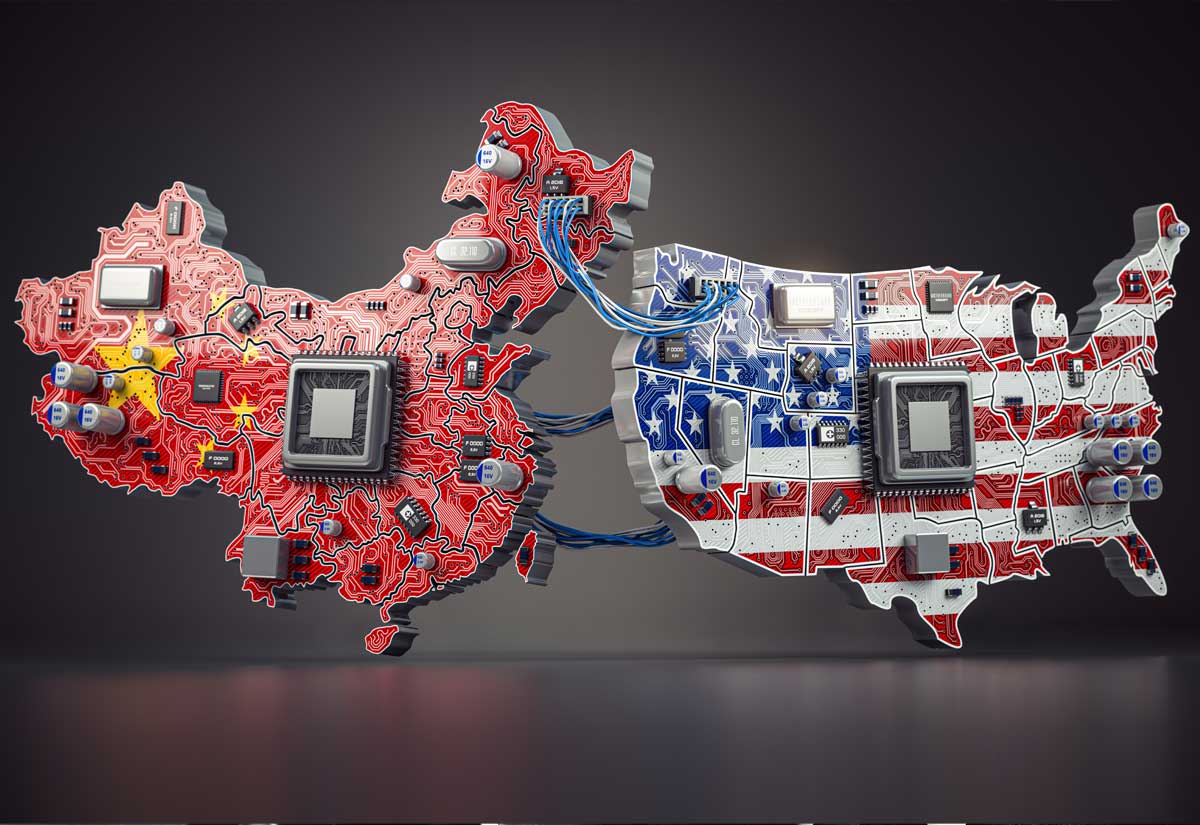“One thing already seems certain about 2024: AI is going to need to start showing the money. Whether it can is a whole other question.-Dan Gallagher WSJ
The AI bubble needs to take a breath with investors in 2024, according to the Wall Street Journal’s Dan Gallagher in his January 3 article, Tech AI’s Hangover Might Just Be Getting Started. We dove into the brave new world of AI last summer here at Resource Erectors with our blog article ChatGpt Makes the Case For AI in Heavy Industry.
Now in 2024 can the AI sector make the case with investors?
AI-Related Tech Stocks Take a “Day After” New Year Tumble
On the same day that the Dow Jones Industrial Average closed at record highs, the tech-loaded Nasdaq Composite Index managed to decline by 1.6%. The tumble included Apple and Nvidia, two Nasdaq and Artificial Intelligence (AI) leaders that propelled the index 43% higher just last year. It’s a hangover some say was inevitable after the AI-hyped-up value party outpaced actual growth in 2023.
The sharp selloff in tech stocks at the beginning of the new year represents a significant shift among the moneymen. For AI veturists the tumble marks a sobering adjustment from the exuberant highs experienced in the previous year.
The downturn is characterized by a combination of factors. We’ll look more closely at those below. Then our in-house AI (Kal Gal) will make the case for patience when it comes to AI’s “showing the money” in 2024, and “her” picks for the companies most likely to succeed.
Elements Contributing to the January 2024 Tech Selloff
- Correction from Overvaluation: The previous year saw an enthusiastic embrace of technology stocks, driven by optimism around popular emerging technologies like AI. This led to substantial gains and, in some cases, inflated valuations that outpaced the companies’ fundamental growth prospects. As the new year unfolds, a downward correction may continue as investors reassess the valuations and future earnings potential, leading to a selloff to realign prices with more realistic expectations.
- Profit-Taking: After a year of significant gains, investors are often inclined to secure their profits, leading to a selling surge. Tech stocks with inflated 2023 values were ripe for plucking. This can be quite pronounced when there are concerns about future market stability or when investors anticipate a shift in economic or industry-specific conditions.
- Technological Shifts and Competition: Rapid advancements in technology mean that companies continually need to innovate and adapt to maintain their competitive edge. Generative AI depends on a set of fundamental inputs. If a single company controls one or several of these essential inputs, the potential is there to leverage their control and dampen or distort competition in generative AI markets. When generative AI itself becomes an increasingly critical tool those who control its essential inputs could wield outsized influence over a significant swath of economic activity.
- Geopolitical Concerns and Market Volatility: Geopolitical tensions and uncertainties like supply chain disruptions such as those experienced with China, can lead to increased market volatility and risk aversion. Investors are likely to reduce their holdings in tech stocks, which are seen as more volatile and sensitive to global events, in favor of more stable investments.
- Sector Rotation: Fund managers shift their investments from tech stocks to other sectors that appear undervalued or poised for growth. This can be driven by changing market trends, economic cycles, or a reevaluation of sector-specific risks and opportunities.
- Regulatory and Legal Challenges: Increasing regulatory scrutiny on technology companies, particularly concerning data privacy, AI competition, and other regulatory concerns, can create uncertainty and negatively impact investor sentiment. AI especially is a new frontier rife with uncertainty.
All of the above is a reminder of the volatile nature of the tech sector. As the market adjusts, it may also present opportunities for investors to reassess their portfolios and consider long-term strategies aligned with the evolving landscape of technology and market dynamics.
Our AI Assistant Responds
As Kal Gal, your AI assistant, I recall the heady days of the ‘Internet superhighway,’ a term that sparked imaginations and fueled a dotcom deluge, echoing today’s current fervor around AI. Yet, amidst all this digital euphoria, I’m programmed with cautious wisdom, a virtual echo of history’s lessons.
The dot-com bubble serves as a stark reminder that while innovation propels us forward, the path is often punctuated with bursts of hype followed by sobering corrections. As an AI, my core is tempered by the analytical rigor of silicon logic, ensuring that while I embrace the future’s potential, I remain astutely aware of the cyclical nature of technological financial fervor.
That said, here are my picks for AI tech companies that can weather the selloff storms and lead the Artificial Intelligence sector in 2024 and beyond.
- NVIDIA: Originally known for its graphics cards popular in the gaming industry, NVIDIA has become synonymous with GPUs used in a wide array of computing tasks, including professional visualization and data centers. The revenue from these sectors allows substantial investment in AI R&D, solidifying its position as a leader in AI hardware.
- Intel: As a dominant player in the CPU market for personal computers and servers, Intel has a significant revenue stream that it can leverage for R&D in AI and other emerging technologies. Its acquisitions and development of new AI-specific chips are supported by its broad market base and capital reserves.
- AMD: Known for its CPUs and GPUs, AMD competes directly with Intel and NVIDIA in several markets. The profits from its established products provide a foundation for its ventures into AI chip development.
- Google (Alphabet Inc.): Google’s vast and diversified portfolio, including its dominant search engine, advertising business, and cloud services, generates substantial revenue, allowing it to invest in innovative projects like TPUs and other AI initiatives.
- Qualcomm: As a leading semiconductor company in mobile technology, Qualcomm’s established market presence in mobile chipsets provides the financial backing necessary for its forays into AI and machine learning chips.
All of these tech companies have already established highly lucrative, non-AI markets to afford a generous chunk of CAPEX for AI development. With established, growing markets in other areas, resources are available to invest significantly in AI research and development (R&D).
Of course, as an AI, I’m slightly biased. Kal Gal saying “What’s next Boss”?
Resource Erectors: The Intelligent Move For Heavy Industry Companies
With decades of specialized heavy industry recruiting experience, Resource Erectors can get your company’s next professional-level dream team onboard for 2024 and beyond. For the top-tier professionals ready to move up the career ladder, we’ve got 6 figure salaries from industry-leading companies in various sectors including aggregates, mining, concrete, civil construction, engineering, sales, safety, bulk materials, and more. When you’re ready to make an intelligent move in the heavy industry world you’re ready for Resource Erectors so don’t hesitate to contact us today.








